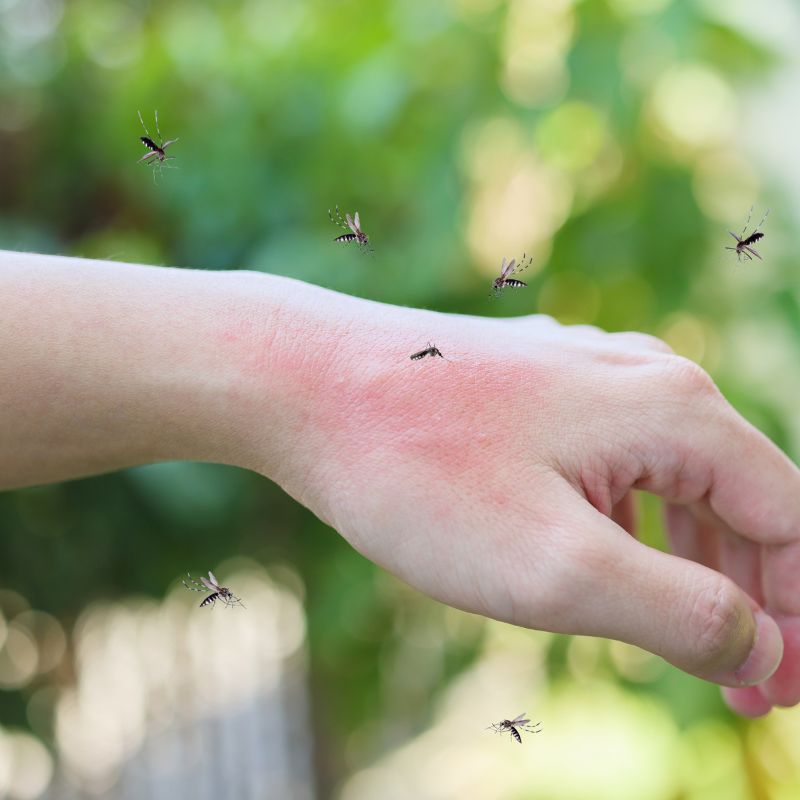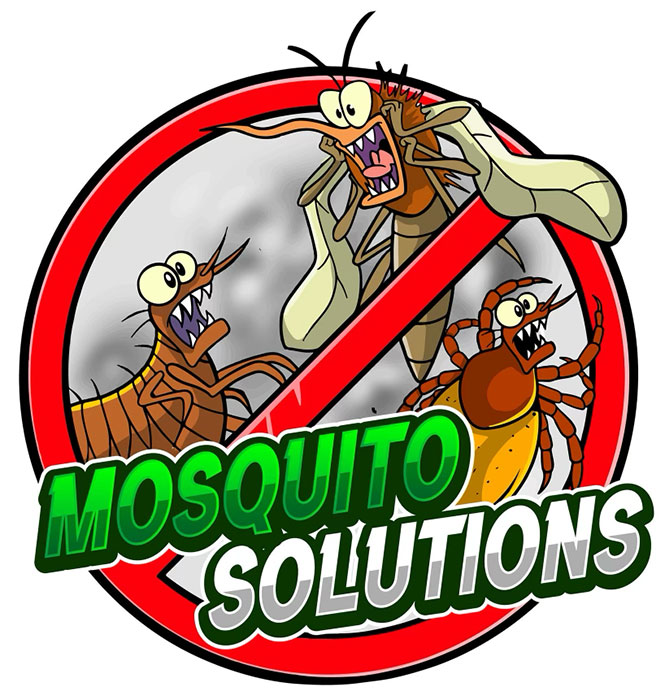It’s true that mosquitoes play an important role in our ecosystem, but often it seems that their only goal in life is to make our lives miserable. Their stealthy attacks leave us with itchy, irritating bites that linger far longer than we’d like, and they can turn a fun outdoor event into a bleak affair.
So, why do mosquito bites itch in the first place? Let’s delve into the science behind this common annoyance – and figure out the best ways to avoid it.
Need mosquito relief for the nicer weather that’s around the corner? Call on us – we offer mosquito spraying services for your yard, and we’re here for folks all throughout Suffolk County, NY.
What Happens When a Mosquito Bites?
Mosquito bites aren’t merely the result of a pesky insect puncturing our skin for a quick snack. The bite is actually more complex than that, and the reason we itch has to do with how the mosquito’s saliva interacts with our body’s immune response.
When a mosquito bites, it injects saliva into our skin to prevent our blood clotting, making it easier for them to feed.
This saliva contains various proteins and enzymes, which jumpstart a cascade of reactions in our bodies – and triggers the alarm bells in our body’s immune system in the process.
Because our body perceives the foreign substances in mosquito saliva as potential threats, it goes into defense mode. White blood cells rush to the site of the bite to neutralize any invaders, widening blood vessels and increasing blood flow to the affected area – which is why we tend to experience inflammation, swelling, and – you guessed it – itching.

Why Does the Itch Sensation Occur?
This is due to something that travels to the infected area with the white blood cells – histamine.
Histamine binds to specific receptors in nerve endings, sending signals to the brain that interpret them as itching. Additionally, other compounds in mosquito saliva can further exacerbate the itchiness, prolonging the discomfort.
Do All Mosquito Bites Itch?
Interestingly, not everyone experiences the same level of itching after a mosquito bite. Some people barely notice, while others develop large, red welts that itch intensely. What gives?
Why do mosquito bites affect some more than others?
This discrepancy can be due to several different things. A person who gets severe reactions could experience this because of one or more of the following factors:
- They have a hypersensitive immune system.
- They may be allergic to components in the mosquito’s saliva.
- They could’ve become over-sensitized to the reaction due to excessive exposure over time.
- They may have more sensitive or thinner skin.
In addition, children and infants may experience more severe reactions to mosquito bites compared to adults, as their immune systems are still developing.
Finally, environmental factors such as humidity, temperature, and bacterial flora on the skin can affect the severity of mosquito bite reactions. Warm, humid conditions may exacerbate itching and swelling, while bacterial infections or secondary skin conditions can complicate the healing process.
Is It Okay To Scratch Mosquito Bites?
The immediate response to an itchy mosquito bite is often to scratch it…and scratch it…and scratch it.
Here’s the thing, though – while scratching may provide temporary relief, it can also worsen the irritation. Excessive scratching can damage the skin, leading to secondary infections and prolonged healing times.
It’s a vicious cycle – scratching temporarily relieves the itch but ultimately prolongs the discomfort.
How Can a Person Find Relief From Mosquito Bite Itches?
Fortunately, there are several strategies to alleviate the itchiness of mosquito bites without resorting to scratching:
- Topical Treatments: Over-the-counter anti-itch creams or lotions containing ingredients like hydrocortisone, calamine, or menthol can provide relief by numbing the area and reducing inflammation.
- Cold Compresses: Applying a cold compress or ice pack to the affected area can temporarily numb the nerves and reduce swelling, alleviating itching.
- Antihistamines: Oral antihistamines such as diphenhydramine (Benadryl) or loratadine (Claritin) can help suppress the body’s histamine response, reducing itching and inflammation.
- Natural Remedies: Some people find relief from itching by applying natural remedies like aloe vera gel, tea tree oil, or oatmeal paste to the affected area.

Call Mosquito Solutions Today
Of course, the best way to deal with mosquito bites is to avoid getting bitten in the first place. Using insect repellents containing DEET, wearing long sleeves and pants, and installing screens on windows can help minimize mosquito encounters…but the best way to ensure your household stays mosquito-free is by counting on our crew from the get-go.
Let’s get started – call or schedule with us online today.

Recent Comments